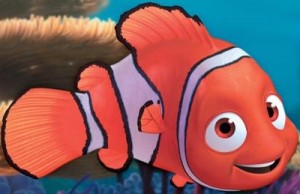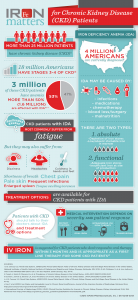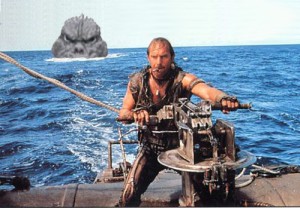March 22nd, 2013 by Dr. Val Jones in Health Tips
No Comments »
 Finding Nemo is one of my favorite Disney-Pixar cartoons. Not only does it have a cute story line, but it’s full of medical themes – consider the movie’s namesake with a congenitally deformed fin (Nemo), the shark with addiction problems (Bruce), and the blue tang fish with memory impairment (Dory). Even Nemo’s captor turns out to be a dentist! But when I think about the scene where the fish attempt escape from the dentist’s tank by plugging up the filter system to get him to remove them for cleaning, I always think about kidneys. Yep, you heard me right. Kidneys.
Finding Nemo is one of my favorite Disney-Pixar cartoons. Not only does it have a cute story line, but it’s full of medical themes – consider the movie’s namesake with a congenitally deformed fin (Nemo), the shark with addiction problems (Bruce), and the blue tang fish with memory impairment (Dory). Even Nemo’s captor turns out to be a dentist! But when I think about the scene where the fish attempt escape from the dentist’s tank by plugging up the filter system to get him to remove them for cleaning, I always think about kidneys. Yep, you heard me right. Kidneys.
Kidneys are fairly under appreciated organs. They filter waste out of 200 liters of blood each day, much the way a fish tank’s filter system purifies its water. Most of us probably don’t even notice a fish tank filter when we gaze at the plastic plants, pebbles, and colorful animals inside the tank – just as we don’t give our kidneys a second thought until they cause us problems.
But the reality is that an astonishing number of people will develop chronic kidney disease (CKD) in their lifetime, largely due to complications from diabetes. An estimated 26 million Americans have CKD, and the majority don’t even know it. Our fish tank filters are failing slowly – and the build up of “algae and grime” just doesn’t cause symptoms until very late in the failure process.
Since March is Kidney Awareness Month, I thought it would be a good time to reflect upon the hard work that our little guys are doing each day. Beyond filtering drugs and chemicals from the blood, kidneys balance body fluids and electrolytes, create Vitamin D, regulate our blood pressure, and produce hormones that stimulate our bodies to produce red blood cells. In fact, anemia can be one of the first signs of kidney failure, and may be experienced as generalized fatigue. People with CKD often suffer from anemia, which can be treated with dietary changes, oral iron, IV iron, or blood transfusions depending on disease severity.
So whether or not you’ve been feeling fatigued, why not ask your primary care physician to check your kidneys next time you’re there for a check up? A simple blood test can identify many kidney diseases early on – so that you can take steps to keep your filter system healthy for life. Just ask Nemo – being in a dirty fish tank is no way to live.
For more information about CKD and anemia, please check out this infographic:

October 25th, 2011 by Dr. Val Jones in Health Tips
2 Comments »
 Perhaps you’ve heard that increasing your water intake is part of a healthy lifestyle – and that you should drink at least 8 glasses of a day. This “rule of thumb” is actually not based on scientific evidence. Although for many people it’s not harmful advice, you may not need to work so hard at getting enough water every day.
Perhaps you’ve heard that increasing your water intake is part of a healthy lifestyle – and that you should drink at least 8 glasses of a day. This “rule of thumb” is actually not based on scientific evidence. Although for many people it’s not harmful advice, you may not need to work so hard at getting enough water every day.
The amount of water that your body needs depends on three main variables (yes, needs can vary with different illnesses and conditions, but let’s talk about the average American):
1. Your body’s size
2. Your activity level
3. Your environment (weather and humidity conditions)
The larger you are, the more water you lose from sweat (be it from physical activity or hot weather conditions), the more water you need to replace. The amount you need can vary a lot – and in most cases there are two tricks you can use to stay properly hydrated: Read more »
March 18th, 2011 by John Mandrola, M.D. in Health Tips
No Comments »

In the better-late-than-never category comes my shout out for World Kidney Day, which was March 10th.
I love their slogan: “Protect your Kidneys, Save your Heart.”
As an organ, the kidneys are a lot like offensive lineman in football; they do all the hard work but remain mostly anonymous. They sit motionless in the back of the body,quietly and humbly filtering salt, water and toxins from our bodies. Though some may think that pee smells bad, or is gross, not having “healthy” pee is a real problem. No one ever thinks of their kidneys until they malfunction.
Though the inner workings of the kidney–with all its convoluted loops, capsules and ion exchangers–are more complicated to understand than the heart, keeping your kidneys healthy is simple: just make heart-healthy choices. Read more »
*This blog post was originally published at Dr John M*
February 2nd, 2011 by Mary Knudson in Health Tips, Opinion
No Comments »

 I confess to loving Campbell’s tomato bisque soup. I mix it with 1 percent-fat milk and it’s hot and delicious and comforting, but one of the worst food choices I could make because one cup contains more sodium than I should have in a day. Knowing this, I have already relegated it to an occasional treat. But by the end of this blog post I will do more.
I confess to loving Campbell’s tomato bisque soup. I mix it with 1 percent-fat milk and it’s hot and delicious and comforting, but one of the worst food choices I could make because one cup contains more sodium than I should have in a day. Knowing this, I have already relegated it to an occasional treat. But by the end of this blog post I will do more.
We are overdosing on sodium and it is killing us. We need to cut the sodium we eat daily by more than half. The guidelines keep coming. The U.S. government has handed out dietary guidelines telling Americans who are over 50, all African Americans, people with high blood pressure, diabetes, or chronic kidney disease to have no more than 1,500 milligrams (mg) — or two thirds of a teaspoon — of sodium daily. That’s the majority of us — 69 percent. Five years ago the government said that this group would benefit from the lower sodium and now it made this its recommendation. The other 31 percent of the country can have up to 2,300 mg a day, say the guidelines from the U.S. Department of Agriculture (USDA) and the U.S. Department of Health and Human Services (HHS).
Or should they? The American Heart Association (AHA) recommends that all Americans lower sodium to less than 1,500 mg a day. Excessive sodium, mostly found in salt, is bad for us because it causes high blood pressure which often leads to heart disease, stroke, and kidney disease and can also cause gastric problems. People with heart failure are taught to restrict salt because water follows salt into the blood and causes swelling of the ankles, legs, and abdomen and lung congestion that makes it difficult to breathe.
I saw one recommendation by an individual on the Internet to just drink a lot of water to flush the sodium out of your body rather than worry about eating foods that have less sodium. BAD idea, especially for people with heart problems who need to restrict fluids to help prevent fluid accumulation in their bodies. The salt will draw the water to it.
But cutting our salt consumption by half is quite a tall order for an individual consumer because Americans have been conditioned from childhood to love salt and we on average consume 3,436 mg — nearly one and a half teaspoons — a day. Sodium is pervasive in our food supply. We get most of our sodium from processed foods and restaurant and takeout food, sometime in unexpected places. Read more »
*This blog post was originally published at HeartSense*
April 4th, 2010 by David Kroll, Ph.D. in Better Health Network, Health Tips, Opinion, True Stories
1 Comment »

As I stutter through recovery from LungMutiny2010, I’m paying more attention to my diet. So as I try to go out for my 10-minute walk everyday, I still drink some sports drink — usually Gatorade made from the massive vat of powder you can buy at Costco.
We tend to get plenty of sodium in our diet — far too much in the U.S. actually — but I always worry about potassium when I’m sweating (Disclaimer: I am not an exercise physiologist or a cardiovascular or nephrology physician.)
I always thought that the widely-sold sports drinks were the best sources of potassium outside of eating bananas or some dried fruits. I was surprised to learn that an 8-ounce serving of orange juice contains 18-fold more potassium than an 8-ounce serving of Gatorade® (450 mg vs. 25 mg). Who knew? Read more »
*This blog post was originally published at Terra Sigillata*
 Finding Nemo is one of my favorite Disney-Pixar cartoons. Not only does it have a cute story line, but it’s full of medical themes – consider the movie’s namesake with a congenitally deformed fin (Nemo), the shark with addiction problems (Bruce), and the blue tang fish with memory impairment (Dory). Even Nemo’s captor turns out to be a dentist! But when I think about the scene where the fish attempt escape from the dentist’s tank by plugging up the filter system to get him to remove them for cleaning, I always think about kidneys. Yep, you heard me right. Kidneys.
Finding Nemo is one of my favorite Disney-Pixar cartoons. Not only does it have a cute story line, but it’s full of medical themes – consider the movie’s namesake with a congenitally deformed fin (Nemo), the shark with addiction problems (Bruce), and the blue tang fish with memory impairment (Dory). Even Nemo’s captor turns out to be a dentist! But when I think about the scene where the fish attempt escape from the dentist’s tank by plugging up the filter system to get him to remove them for cleaning, I always think about kidneys. Yep, you heard me right. Kidneys.


 Perhaps you’ve heard that increasing your water intake is part of a healthy lifestyle – and that you should drink at least 8 glasses of a day. This “rule of thumb” is actually
Perhaps you’ve heard that increasing your water intake is part of a healthy lifestyle – and that you should drink at least 8 glasses of a day. This “rule of thumb” is actually 










